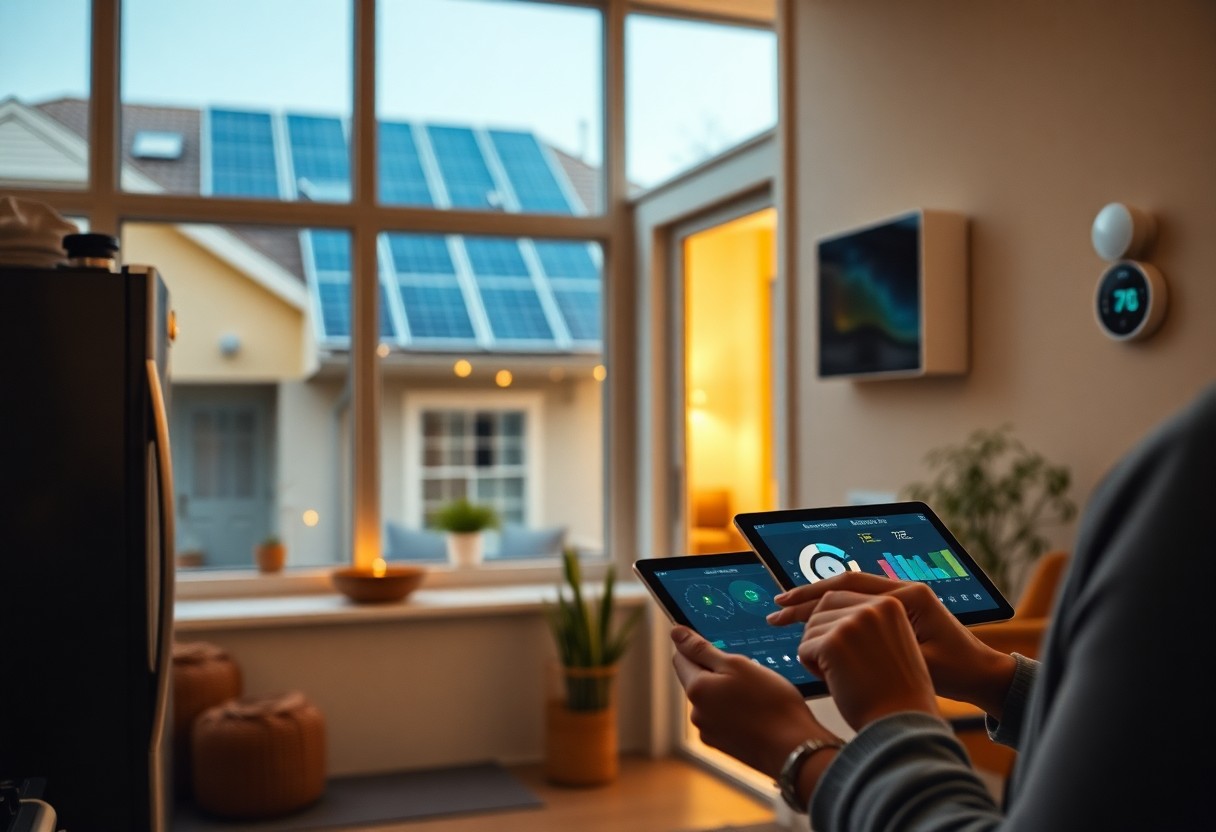Over time, energy bills can significantly dent your finances, but there are clever strategies you can adopt to reduce these costs. By implementing simple changes in your home and habits, you can achieve notable savings without compromising comfort. From improving insulation to utilising energy-efficient appliances, your choices can lead to lower expenses and a more sustainable lifestyle. Dive into these ingenious tips that will empower you to transform your energy bills into savings!
Understanding Your Energy Usage
While many people pay their energy bills without a second thought, understanding your energy usage is the first step toward transforming those costs into savings. By familiarising yourself with when and how you consume energy, you can pinpoint opportunities to reduce waste and improve efficiency. This knowledge enables you to implement strategic changes that lead to significant savings over time.
Analyzing Your Energy Bills
Analyzing your energy bills provides a clear picture of your consumption habits. Take a moment to review each bill in detail; note the times of peak usage and any fluctuations in your charges. Understanding these trends will equip you to make informed decisions about your energy usage, thereby helping you to identify areas where you can cut back and save.
Identifying High-Consumption Appliances
Energy efficiency starts with identifying high-consumption appliances in your home. Some devices may account for a substantial portion of your energy usage, often exceeding what you anticipate. By targeting these specific appliances, you can reduce their usage, thereby lowering your overall bills.
To effectively manage your energy costs, it’s necessary to *identify the appliances that consume the most energy*. Common culprits often include *heating and cooling systems, water heaters, and older refrigerators*. You might consider upgrading to more *energy-efficient models* or adjusting usage habits to ensure these appliances operate less frequently. Moreover, using smart power strips can help eliminate standby power consumption, which can significantly impact your *monthly energy expenses*. By focusing on these high-consumption appliances, you can make notable strides in reducing your energy bills.
Effective Energy-Saving Strategies
Some strategies can significantly lower your energy bills while maintaining comfort in your home. Implementing a few energy-saving measures not only benefits your wallet but also contributes to a greener environment. From smart technology solutions to investing in efficient appliances, exploring these strategies will surely yield positive results in your energy consumption.
Smart Thermostats and Home Automation
With smart thermostats, you can automate your heating and cooling systems to optimise their performance based on your routine. These savvy devices enable you to control your home’s temperature remotely, ensuring you are not wasting energy on an empty house. By setting schedules, you can maximise savings and maintain comfort effortlessly.
Energy-Efficient Appliances and Lighting
Against conventional appliances, which consume excessive energy, energy-efficient alternatives can drastically reduce your bills. By choosing appliances with high energy ratings, you’re not only decreasing your utility expenses but also lessening your carbon footprint.
The choice of energy-efficient appliances and LED lighting can lead to substantial savings on your electricity bills. These products use significantly less power than their older counterparts, thereby reducing your energy costs. Furthermore, many of these appliances have longer lifespans, which means fewer replacements and less waste. By replacing just a few major appliances and switching to energy-saving light bulbs, you could see up to 30% savings on your monthly bills, making this strategy both a smart financial decision and an eco-friendly one.
Seasonal Energy Tips
Clearly, adapting your energy usage with the seasons can significantly impact your bills. Consider these energy tips:
- Upgrade to energy-efficient appliances.
- Insulate your home to maintain heat retention.
- Utilise natural light to reduce electricity usage.
- Regularly service your heating and cooling systems.
Knowing these strategies can help you optimise your energy consumption throughout the year.
Winter Heating Efficiency
Heating your home efficiently during the winter months is important for reducing costs. Ensure that your radiators are not obstructed, and use thermostats to manage your home’s temperature effectively. You can save even more by layering clothing rather than cranking up the heat.
Summer Cooling Techniques
Beside managing heat, effective cooling in the summer can also lead to savings. Make use of fans to circulate air and keep your home comfortable without relying solely on air conditioning.
Cooling your home during the hot months involves several strategies that can enhance your comfort while keeping energy expenses low. Focus on shading windows with blinds or curtains during the hottest parts of the day to block out sunlight. This simple technique helps lower your indoor temperature significantly. Additionally, consider using a programmable thermostat to establish a balanced schedule, so your cooling system runs only as needed. Don’t neglect regular maintenance of your air conditioning unit, as a well-serviced system operates more efficiently, ultimately leading to lower energy bills and a more comfortable living environment.
Insulation and Weatherproofing
Not prioritising insulation and weatherproofing could significantly impact your energy bills. Enhancing your home’s insulation helps keep warm air inside during winter and reduces the amount of heat entering during summer. By implementing these measures, you can enjoy a more comfortable living space while lowering your energy costs.
Importance of Insulation
Along with improving your home’s energy efficiency, quality insulation also enhances indoor air quality and reduces noise pollution. When your home is well-insulated, it creates a barrier against external environmental changes, allowing you to maintain a consistent temperature and ultimately save on energy bills.
DIY Weatherproofing Tips
Insulation can be further elevated by applying simple DIY weatherproofing techniques. Here are some actionable tips:
- Seal gaps and cracks around windows and doors using caulk
- Install to block drafts
- Cover windows with thermal curtains to reduce heat loss
- Apply plastic sheeting to windows during colder months
Assume that following these tips will not only enhance your home’s comfort but will also yield substantial savings in your energy bills.
At its core, DIY weatherproofing is about being proactive in combating energy loss. Starting with simple tools and materials can make a significant difference in your home’s temperature control:
- Check for any visible damage around your roof and repair as needed
- Insulate your pipes to prevent heat loss
- Inspect your attic for proper insulation levels
- Use foam sealant for larger gaps around plumbing or vents
Assume that these steps will create a more energy-efficient environment, resulting in lower energy bills and a more sustainable home.
Utilising Renewable Energy Options
Unlike traditional energy sources, renewable energy options offer sustainable solutions that can significantly reduce your energy bills. By harnessing the power of the sun, wind, or other natural resources, you not only lower your monthly expenses but also contribute positively to the environment. Transitioning to renewable energy sources can be an investment, but the long-term savings and environmental benefits make it a wise choice for your household.
Solar Power for Homes
Along with being environmentally friendly, solar power installations on your home can lead to impressive savings on your energy costs. By capturing sunlight and converting it into usable electricity, you can reduce your reliance on the grid and transform your energy bills. This clean energy source is becoming increasingly accessible, making it a wise option for your household.
Incentives and Rebates for Renewable Energy
Incentives for renewable energy adoption can further enhance your savings potential. Various government programmes and local initiatives offer financial support, from tax credits to rebates, making it easier and more affordable for you to invest in solar panels or other renewable energy solutions.
Homes that utilise renewable energy solutions can benefit from a range of incentives and rebates. These financial helps can significantly reduce the upfront costs of investing in solar power and other green technologies. For example, you may be eligible for federal tax credits, state grants, or local utility discounts that lessen your initial expenditure. Incorporating renewable energy into your home not only saves you money but also creates a positive impact on the environment, encouraging a sustainable future.
Monitoring and Adjusting Your Habits
For effective energy savings, it’s crucial to monitor and adjust your habits. By keeping a close eye on your energy usage, you can spot trends and identify areas where you can make changes. Regularly evaluating your energy consumption helps you become more conscientious about your habits and can lead to significant reductions in your energy bills.
Using Energy Monitoring Tools
Any household can benefit from energy monitoring tools, which provide insights into your energy consumption patterns. These devices allow you to track your usage in real-time, highlighting peak usage hours and identifying energy-hungry appliances. By having this information, you can make informed decisions on when and how to use your electrical devices to maximise savings.
Creating a Sustainable Energy Routine
With a sustainable energy routine, you can optimise your energy consumption by establishing habits that reduce waste. This includes turning off lights when you leave a room, unplugging devices not in use, and using energy-efficient appliances.
Monitoring your daily practices is key to establishing this routine. Start by assessing when you typically use the most energy and look for adjustment opportunities. For instance, running the dishwasher or washing machine during off-peak hours can drastically cut costs. You can also reinforce your routine by incentivising family members to participate, creating a collective effort towards using energy more wisely. This can lead to both immediate savings and a long-term culture of sustainability.
Summing up
The tips outlined can significantly assist you in transforming your energy bills into savings. By implementing strategies such as improving insulation, utilising energy-efficient appliances, and being mindful of your energy consumption, you can see a noticeable reduction in costs. Additionally, considering options like switching to a more competitive tariff or exploring renewable energy sources can enhance your savings further. Embracing these practices not only benefits your wallet but also contributes positively to the environment.
FAQ
Q: What are some basic habits that can help reduce my energy bills?
A: There are several simple habits you can adopt to lower your energy bills. Start by ensuring all lights are turned off when not in use and consider switching to energy-efficient LED bulbs. Additionally, unplugging devices that are not being used, such as chargers and appliances, can prevent phantom energy consumption. Using natural light during the day can also lessen reliance on artificial lighting.
Q: How does proper insulation affect my energy bills?
A: Proper insulation plays a significant role in regulating your home’s temperature, which can lead to significant savings on energy bills. Well-insulated walls, roofs, and floors can keep the heat in during winter and out during summer, reducing the need for heating and cooling systems. Consider adding insulation to your loft, sealing gaps around windows and doors, and using draft excluders to improve your home’s energy efficiency.
Q: Are there any advanced technologies available to help save on energy costs?
A: Yes, there are various advanced technologies designed to help manage and reduce energy consumption. Smart thermostats can automatically adjust your heating or cooling settings based on your schedule, ensuring energy is not wasted when you’re not at home. Energy monitoring systems can track your usage in real-time, allowing you to identify patterns and adjust your habits accordingly. Additionally, consider investing in energy-efficient appliances that use less electricity compared to older models.



0 Comments